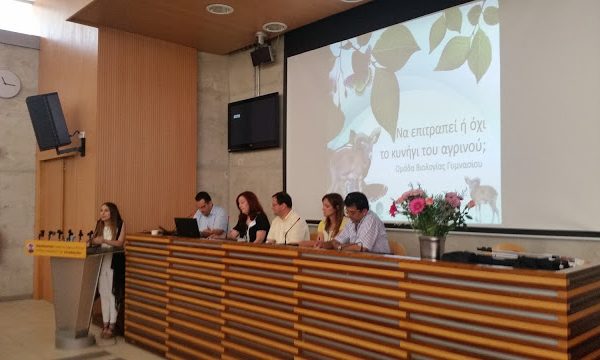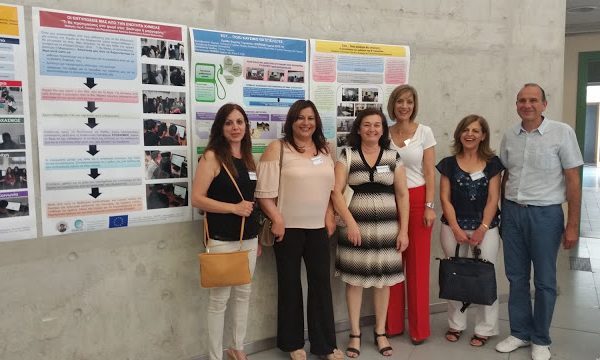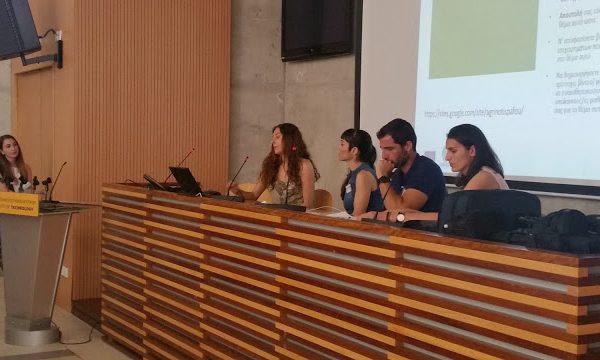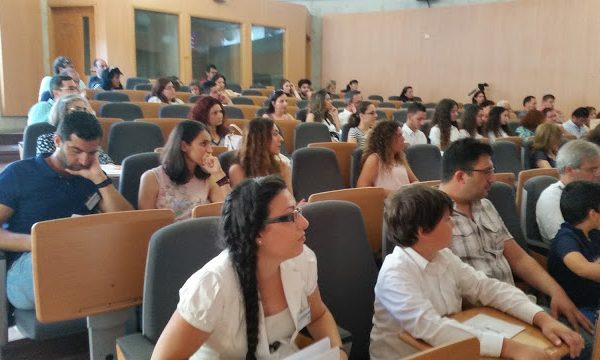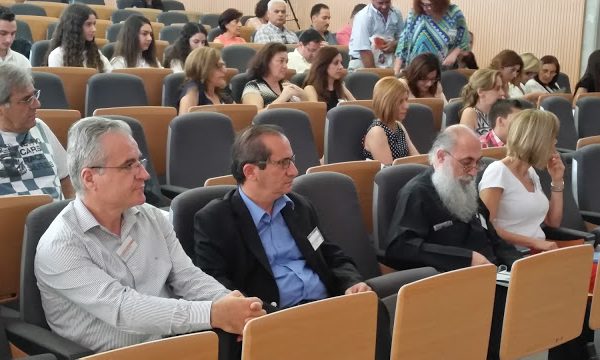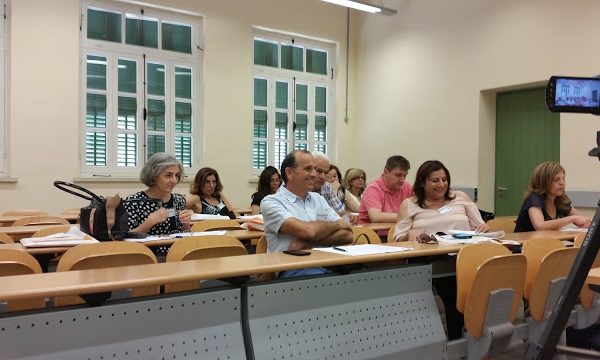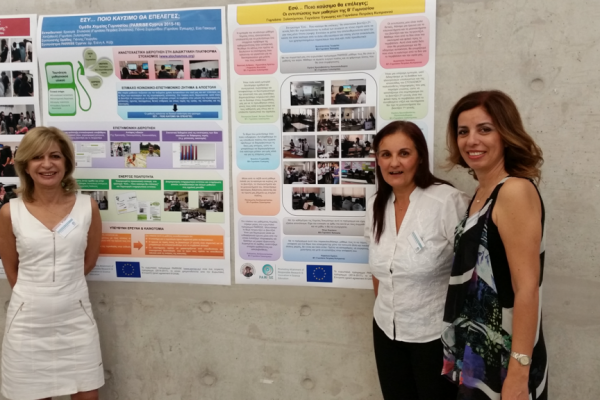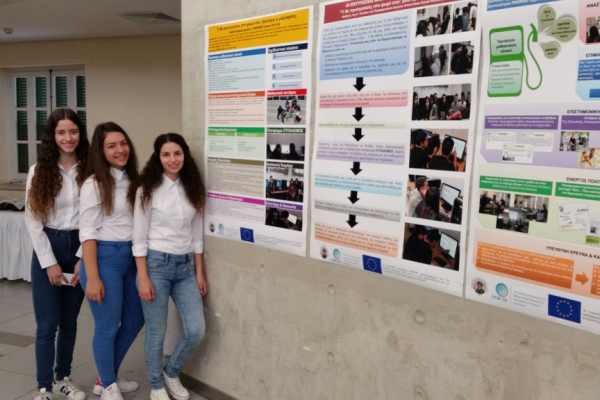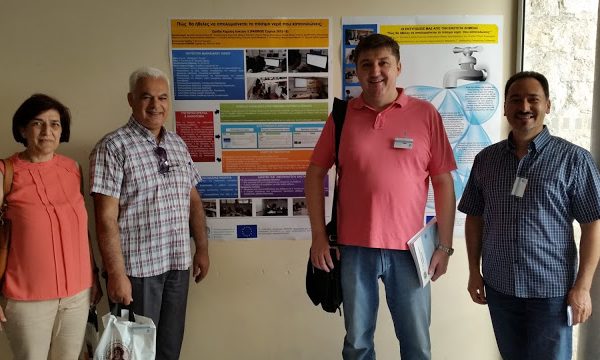RRI and Active Citizenship through teaching science in the context of the PARRISE European project
by Eleni A. Kyza, Yiannis Georgiou, Andria Agesilaou & Andreas Hadjichambis
The 1st round of the PARRISE Cyprus TPD program was completed with a national conference entitled “RRI and Active Citizenship through teaching science in the context of the PARRISE European project”. The conference took place at the Cyprus University of Technology on June 11th, 2016, from 8.30-13.30. The aim of the conference was to give the opportunity to the different science education stakeholders in Cyprus (e.g. policy-makers, academics, school administrators, science education teachers, parents and students), to learn about the PARRISE project and its philosophy, focusing on the PARRISE Cyprus teacher network activities in 2015-2016, and to participate in a public discussion about Science Education in Cyprus.
A total of 90 stakeholders responded positively to our invitation and attended the 1st national PARRISE conference at Cyprus. The conference started with a greeting from Dr. Eleni A. Kyza, coordinator of the PARRISE Cyprus project, a greeting from Dr. Demetrios Mappouras, Inspector of Biology at the Cyprus Ministry of Education and Culture, and a greeting from Mrs. Chrystalla Koukouma, Inspector of Chemistry at the Cyprus Ministry of Education and Culture.
Next, Dr. Kyza, gave an introductory speech presenting the PARRISE Cyprus project. During her presentation, Dr. Kyza highlighted the goals and philosophy of the PARRISE project, introduced the Socio-scientific Inquiry-based Learning (SSIBL) framework and presented the main actions which were realized during the PARRISE 2015-16 TPD courses.
After that, the local PARRISE 2015-16 teachers presented the SSIBL modules they had developed and implemented, while also sharing their views on this process.
As one teacher participant stated:
“Designing our SSIBL module was real fun. Employing a participatory design process allowed us to interact with other colleagues, to exchange our views and ideas, and to collaborate on developing innovative teaching material for our students.”
Another teacher commented afterwards:
“It was a really interesting experience, as we also had the opportunity to implement the SSIBL module within our science classrooms. This allowed us to integrate the SSIBL framework into our teaching practice.”
In addition, 16 posters, prepared by the participating students and teachers, were posted outside the auditorium throughout the event allowing attendees to learn more about the classroom implementations and giving the opportunity to PARRISE teachers and students to present their work to everyone during the breaks.
As reported during the poster session by one student:
“With our participation in the PARRISE project we have learned how to act as future citizens. In particular, we learned to be active citizens and to look out for the most sustainable solutions.”
On the same note, according to another student:
“The topic we have investigated was very interesting. We have realized that as responsible citizens it is important to shape our personal views about the different socio-scientific controversies, so that we can create a better future for us and for the future generations.”
The programme continued with a presentation by Mr. Yiannis Georgiou, Research Associate of PARRISE Cyprus; the presentation focused on the evaluation of the SSIBL implementations. During the presentation, Mr. Georgiou highlighted the effectiveness of the SSIBL-based implementations in terms of promoting students’ motivation, scientific thinking and active citizenship.
The conference concluded with a discussion about the goals of science education in Cyprus, including the main problems and challenges encountered in the local educational system.


